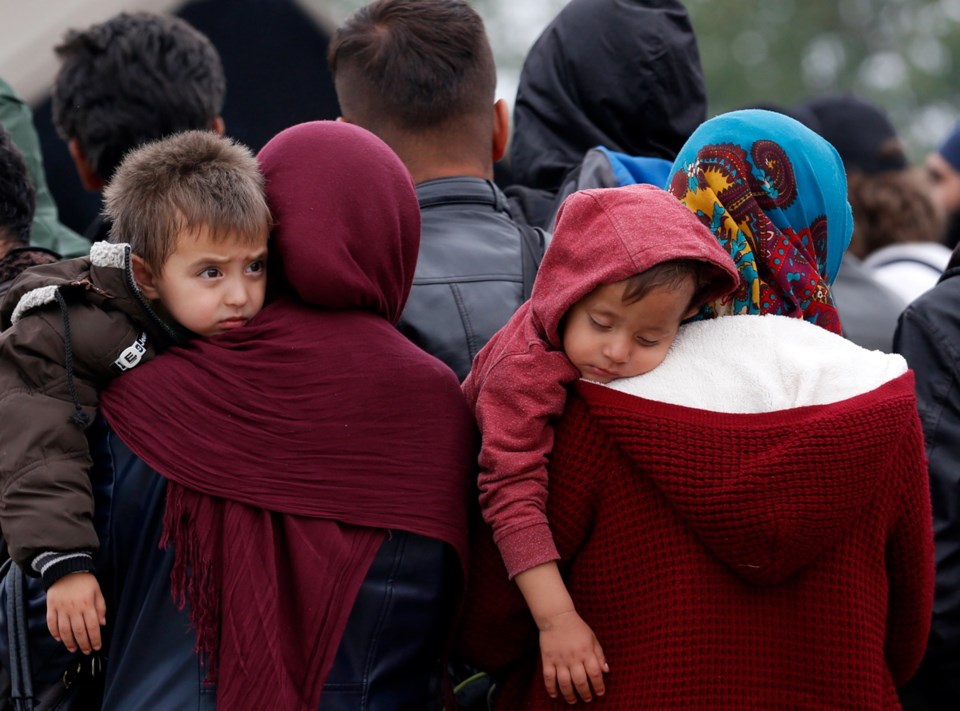The government is merely prioritizing those Christians and other Muslim minorities — as opposed to Muslim Sunnis and Shiites — who are being targeted by the self-proclaimed Islamic State, Harper said this week.
“We are giving priority to the people who are the most vulnerable,” Harper said during a campaign event in Richmond, B.C.
“It is the ethnic and religious minorities in Iraq and Syria who are, in fact, targeted for extermination by the armed group Islamic State and their allies.”
What Harper didn’t mention, however, is that all the resettled refugee candidates Ottawa is considering are far from Islamic State’s reach and are located in places like Lebanon, Jordan and Turkey.
Faisal Alazem of the Syrian Canadian Council says the Conservatives “know full well the majority of people who are paying the price are Sunni Muslim.
“Of course, the Yazidis, the Christians are suffering and are being persecuted,” Alazem said. “(Islamic State) is also persecuting Muslims. So this idea that Islamic State is only persecuting Christians or Kurds is false.”
Asked whether or not he personally ordered the government to prioritize certain groups over others, Harper dodged the question.
“The selection of refugees is never done by political people,” he said. “It’s done by bureaucrats.”
During the past several days on the campaign trail, Harper and his immigration minister, Chris Alexander, confirmed that bureaucrats received orders from the Conservative government to give priority to Syrians who are religious or ethnic minorities such as Christians, Ismailis and Kurds.
“These people deserve our protection,” Alexander said last week. “(It’s) the Yazidis, many Christian groups, Muslim minorities who are in extreme danger, persecuted, by Islamic State.”
The government’s directives seem to have run up against several obstacles.
Sources told The Canadian Press the government was relying on Catholic disaster relief group, Caritas, and the Danish Refugee Council (DRC) for referrals on Christian and other minority refugees.
Neither of these groups, however, agreed to help.
A DRC spokesperson said they “couldn’t comment on what other people are doing but we never discriminate based on ethnicity or religion.”
Isabelle Saade, who until two months ago was responsible for refugees with Caritas in Lebanon, said she didn’t know if her former bosses were approached by Canadian authorities to help filter refugees.
In an phone interview from Beirut, she said it would have been impossible for her former organization to have fulfilled Canada’s request because Caritas had stopped referring refugees to countries.
“It caused us problems,” she explained. “We were asked to stop referring refugees because we were seen as encouraging Christians to leave the Middle East.”
The Harper government had no choice but to welcome refugees selected by the United Nations Refugee Agency, which doesn’t take into account religion or ethnicity unless those characteristics would put the refugees in danger in their destination country.
That’s why the Harper government, after choosing to suspend refugees applications from the UN agency, approached the country’s churches to sponsor refugees.
The government counted on private sponsorships — the majority of which come from churches — to ensure that the 10,000 Syrian refugees the government promised to welcome were Christians or from other minority groups.



